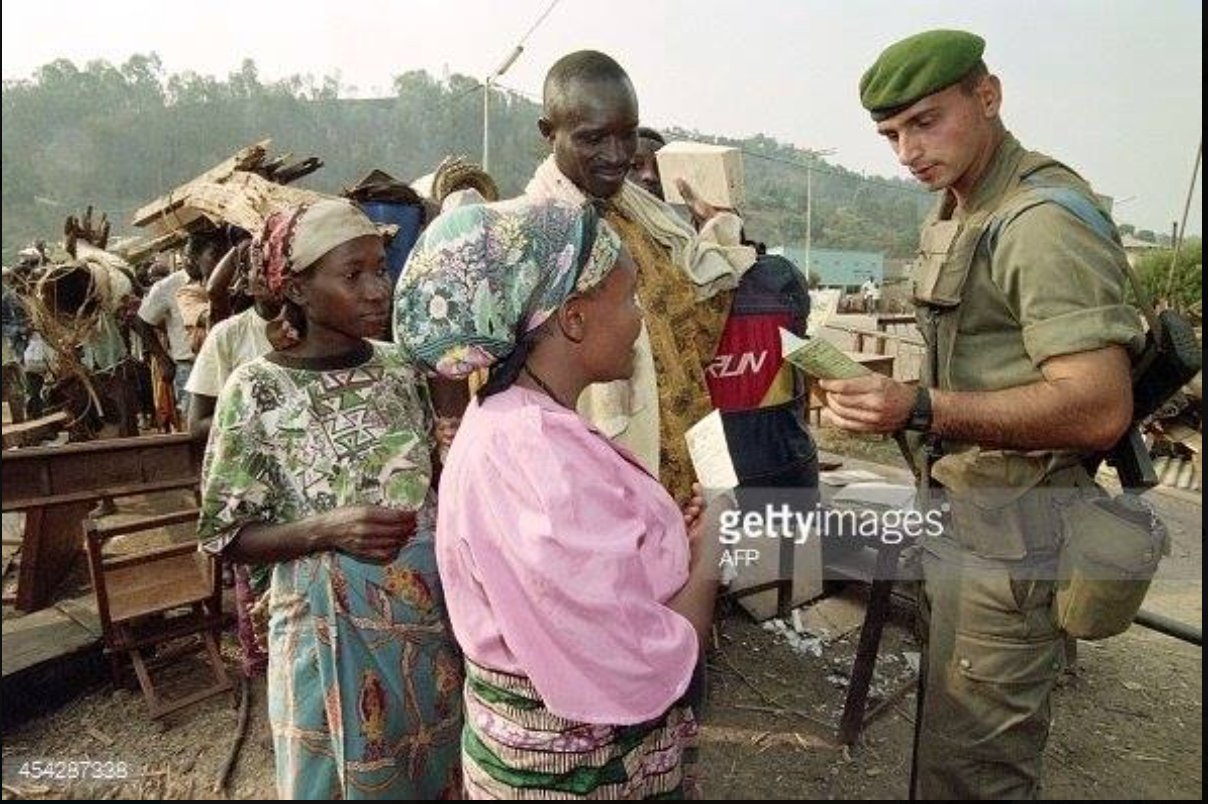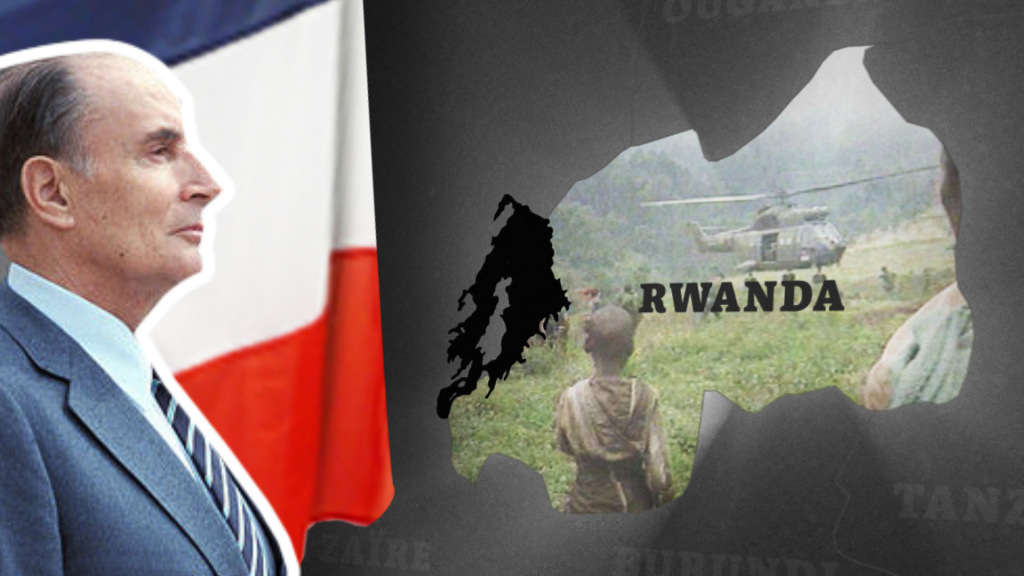Opinion
France's greatest betrayal: Massacres of the Tutsi in Bisesero

French soldier checking the identification cards of Rwandan refugees
Though relations
between Rwanda and France are warming up these days, nothing will make Rwandans
forget how French troops under the Turquoise Operation abandoned the Tutsi, who
had put up resistence since the beginning of the genocide, in the hands of the genocidal
forces.
The Bisesero
region was home to a Tutsi population estimated to be about 60,000. During the
Genocide they put in place a self-defence strategy that enabled them to fend
off gangs of killers for a whole month. Other Tutsi who survived the killings
in other parts of Kibuye, Gisenyi and Gikongoro joined the inhabitants of
Bisesero hoping to join forces to fight
and defeat the attackers.
The besieged
Tutsi used stones, sticks, and traditional weapons like spears, bows and
arrows. According to research done by the National Commission for the Fight
against Genocide (CNLG), the killers came from all communes of Kibuye, and some
communes of former Gikongoro prefecture. But the refugees in Bisesero valiantly
resisted them.
From May 1, to
May 12, 1994, there were no further attacks on Bisesero. The Tutsi started to
rest and thought that there would be no more attacks. Some started to return to
their normal activities such as agriculture,
and tending to their livestock. However, according to CNLG, the killers
had gone to reorganize and plan how to launch more deadly attacks.
Operations to
exterminate the remaining Tutsi started on May 13, 1994 with relentless attacks
on Bisesero by government soldiers, Interahamwe militia from different parts of
Kibuye and Hutu mobs from Bugarama in Cyangugu, Gisenyi, Ruhengeri and
Gikongoro. Tutsi refugees this time failed to repulse the attackers because the
attacks were so intense and heavy weapons were being used. That day, more than
30,000 Tutsi were killed.
The next day,
another 10,000 were killed. To finish off the surviving Tutsi, the Government
meeting of June 17, 1994 decided that the Tutsi of Bisesero, who had been
fighting the killers for more than two months, should be quickly killed. More
than 2,000 surviving Tutsi in Bisesero were killed in front of French soldiers
camping in the Gishyita region who did nothing to help.
French soldiers
especially in Murambi and Nyarushishi camps allowed Interahamwe and government
soldiers to kidnap the Tutsi from the camps, kill some and rape Tutsi girls and
women in refugee camps.
In mid-June 1994,
French officials resolved to deploy French troops to Rwanda in Operation
Turquoise, a mission with, according to France, no goal other than a
humanitarian one to “save lives and stop the massacres.” The UN Security
Council approved the resolution drafted by France despite skepticism amongst
members about its true motives.
Indeed, the
French government used Operation Turquoise - a contingent of 2,924 heavily
armed soldiers - to stop the RPF from controlling all of Rwanda and stopping
the genocide. People like Guillaume Ancel, a retired French officer of
the 68th artillery regiment assigned to the French Foreign Legion during
Operation Turquoise have spoken out and revealed the real mission French
soldiers had. They were not about saving the lives of the Tutsi.
Unfortunately, on
seeing the French troops, the Bisesero refugees came out of hiding hoping for
protection but they were gravely mistaken. The French troops abandoned them.
They left after promising to come back later, thus giving killers the
opportunity to continue the massacres.
Roadblocks and
checkpoints were set up on which the Tutsi were singled out and killed. In
December 2005, survivors of Bisesero took French troops to court seeking
justice. Much to their disappointment, Paris prosecutors concluded that the
investigation did not make it possible to establish that French forces could
have been guilty of crimes against humanity. Eric Plouvier, lawyer for Survie,
an NGO which was among the groups that filed the complaint described the
outcome as “heart-breaking and legally distressing.”
According to
Professor Phil Clarke from SOAS University in London, UK, French prosecutors
recommended dropping the investigation into French troops who abandoned the
Tutsi of Bisesero in 1994 and Hutu militias then massacred hundreds of Tutsi, a
scenario that has "strong resonance of the Dutch peacekeepers at
Srebrenica.”
The Bisesero
story of resistance is always remembered as a brave moment where victims
strongly and courageously faced off killers, before the false hope in help from
the French. Whatever improvement may be
in the relations between Rwanda and France, the incident of Bisesero will
always remain one of the darkest chapters of the French troop’s intervention in
Rwanda. Their role in aiding the killers cannot be erased.



